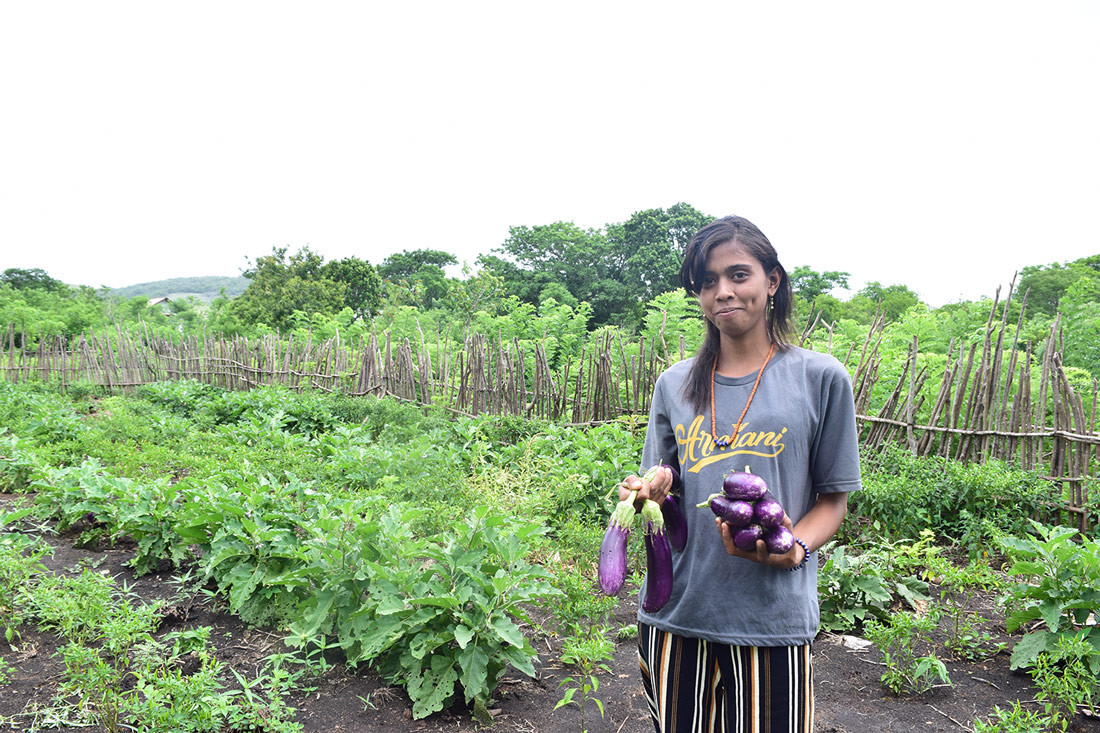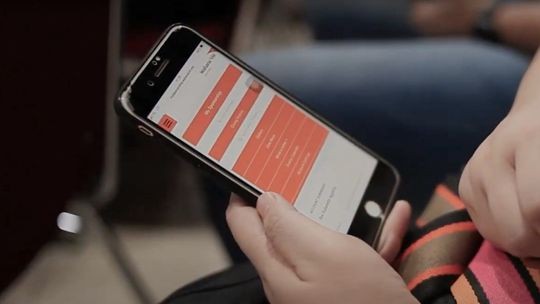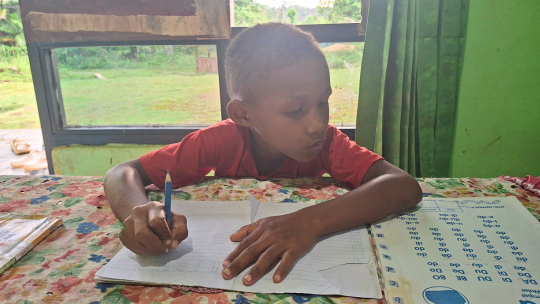Involving in Farmer Women Group to Boost Up the Environmentally Friendly Land Management

Entering the yard of Katrina's house which located in Wunga Village, Haharu District, a row of mahogany trees on the right side is standing as if greeting everyone. Next to her house, Katrina installed a shading net to protect her nursery. She nourishes some seedlings such as vegetables and chilies.
"I bought the shading net by myself," she explained. The mother of one child tells that she has been an active member of the Suka Maju Women's Farmer Group (WFG) since 2018.
"Suka Maju WFG originally consisted of 14 members, but 4 members resigned because they had other activities," she said.
The Suka Maju WFG finally decided to divide the group into two subgroups based on the location of the residence, each sub numbering 5 members. To support her WFG program, Katrina allowed her backyard as a planting area for all members of her sub-group.
"The advantage of joining the WFG is that we can get the alternative water supply from the IRED for the rain is coming erratically in our village," she said.
Wunga Village is one of the dry areas in the Haharu District that facing difficulty to get rain and only has a few springs.
"I am now planting 700 chili trees. It requires 5 liters of water/week for each tree. We cannot rely on only The IRED water tank. So, sometimes we buy the water at IDR 150,000 for 4,000 liters of water, "she said while hugging her only child.
However, all his expenses were paid for with abundant harvests that she earned. Katrina managed to collect 32 kilos of pepper, which ready for sale with a price range of IDR 30,000/kilo.
"With these results, I am encouraged to continue to plant and buy water independently," Katrina determined.
It's quite similar to Katrina, another Suka Maju WFG member in the different subgroup, Yanindra Kapita (23). She chose to plant more eggplants.
"I started joining WFG since October 2019. I immediately planted eggplant. The other member in my subgroup can use my land that is right behind my house," she said excitedly.
She and her subgroup used manure to fertilize the eggplant plants in an area of 10 acres. Moreover, in the process of land management, she and her group did not use the slash and burn practice but by cleaning it.
"We planned that for each person of our member should plant 100 eggplant trees. But apparently, not all can grow because of a lack of water. Finally, we decided to buy tank water with contributions from the members, "she explained.
Since December 2019, the eggplant bore fruits and many people interested to buy it.
"They said that our eggplant is sweeter than any elsewhere eggplants," she said with a laugh.
She claimed to have collected more than IDR 100,000 from selling eggplant in her garden. It was not including eggplant her family consumed for food.
"After this planting season, I want to plant more because as I concerned, I have never planted the eggplants as much as this. I used to plant just for one or two. However, since joining in WFG and we have worked on the fence together, I believe that we can plant lots of eggplants," she concluded.
Written by: Uliyasi Simanjuntak, staff of IRED Project Wahana Visi Indonesia



